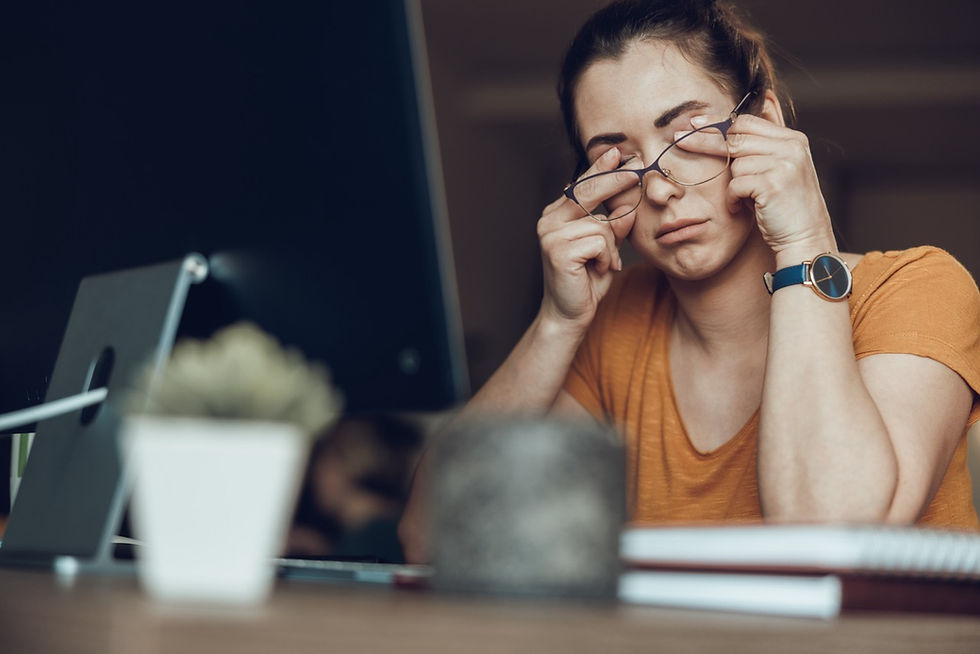Why Is Hydration So Important for Your Health?
- Dean Cranney
- Dec 18, 2024
- 3 min read
Water is life — literally. Every cell, tissue, and organ in your body needs water to function properly. But while most people know that drinking water is “good for you,” many underestimate just how essential proper hydration is for overall health.
From boosting your energy levels to improving brain function, hydration is the ultimate wellness hack. Yet, studies show that up to 75% of Americans are chronically dehydrated. Shocking, right? If you’ve ever felt fatigued, foggy-headed, or had dry skin, dehydration might be the culprit.
In this blog, we’ll explore why hydration is crucial, the benefits it offers, and simple ways to ensure you’re drinking enough water daily.
1. Water: The Body’s Power Source

Water is essential for more than just quenching your thirst. It helps regulate body temperature, lubricates joints, and supports vital functions like digestion and blood circulation. Your heart, brain, kidneys, and muscles all rely on proper hydration to do their job efficiently.
Without enough water, your body can’t flush out toxins, which can lead to fatigue, inflammation, and a weakened immune system. Water truly is the “fuel” that powers your body’s engine.
2. Hydration Boosts Brain Function

Did you know that even a 1-2% drop in hydration can affect cognitive performance? Research has shown that dehydration can impair concentration, memory, and mental clarity.
Water is essential for delivering oxygen and nutrients to the brain. Without it, brain cells struggle to function, which is why dehydration often leads to headaches and “brain fog.” If you have a big presentation or exam coming up, drink a glass of water first. Your brain will thank you.
3. Energy Levels Depend on Hydration

Forget energy drinks — the best energy booster is plain old water. When you’re dehydrated, your blood volume decreases, making it harder for your heart to pump oxygen to your muscles and brain. This leaves you feeling sluggish.
Staying hydrated supports blood flow, oxygen delivery, and electrolyte balance — all essential for energy production. If you’re feeling an afternoon slump, try drinking a glass of water before grabbing that coffee.
4. Hydration Keeps Skin Looking Fresh and Youthful

Hydrated skin = healthy skin. Without adequate water intake, your skin can become dry, tight, and prone to wrinkles. That “glow” everyone talks about? It comes from within — and it starts with hydration.
Water plumps up your skin cells and improves elasticity, helping to reduce the appearance of fine lines and wrinkles. Pair proper hydration with a good skincare routine for maximum results.
5. Hydration Aids Digestion and Nutrient Absorption

Water helps break down food so your body can absorb essential nutrients. If you’re dehydrated, digestion slows down, which can lead to constipation and bloating.
Pro Tip: Drink a glass of water 30 minutes before meals to help your stomach digest food more efficiently.
How Much Water Do You Really Need?
The age-old “8 glasses a day” advice isn’t one-size-fits-all. Water needs vary based on age, activity level, and climate. A better rule of thumb is to aim for at least half your body weight in ounces of water daily.
For example, if you weigh 160 lbs, aim for 80 ounces of water. If you exercise or live in a hot climate, you may need more.
Signs You’re Dehydrated
Not sure if you’re getting enough water? Watch for these signs:
Dry mouth or lips
Headaches or dizziness
Fatigue or sluggishness
Dark yellow urine
If you experience any of these symptoms, grab a glass of water ASAP.
Hydration isn’t just about quenching thirst — it’s about giving your body what it needs to thrive. Next time you’re feeling sluggish, foggy, or just “off,” reach for water first. Your brain, heart, and skin will thank you.




Comments